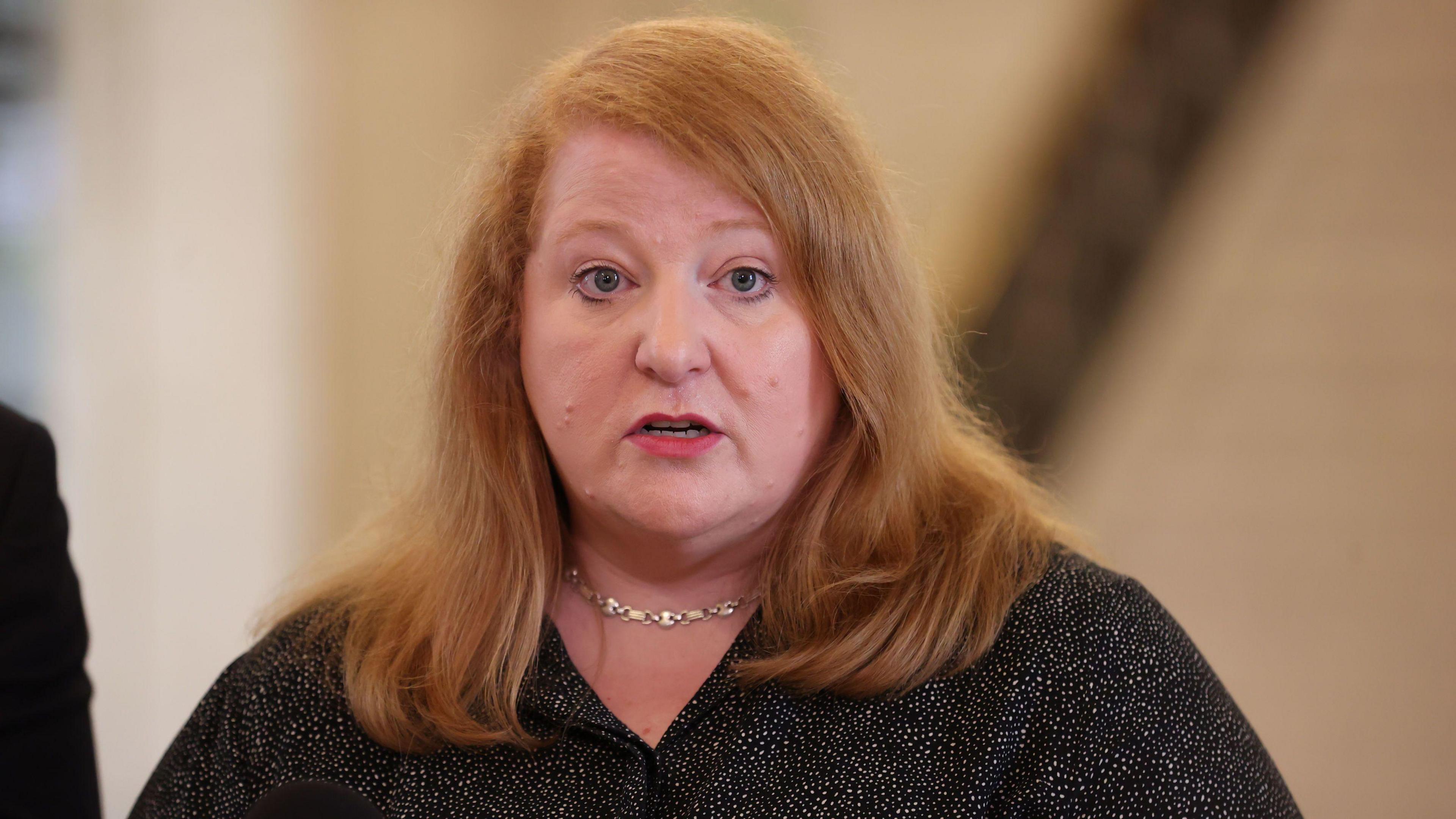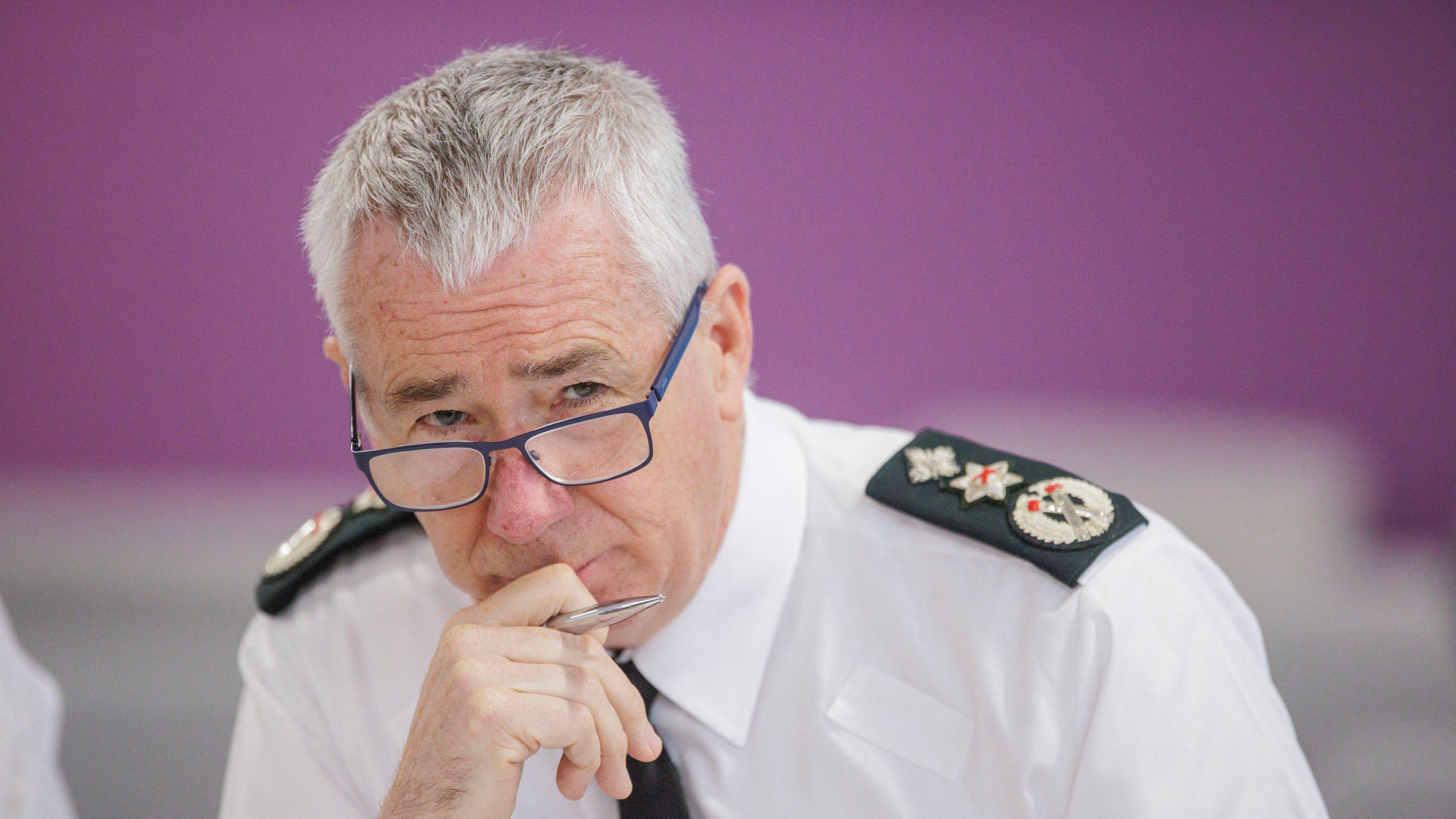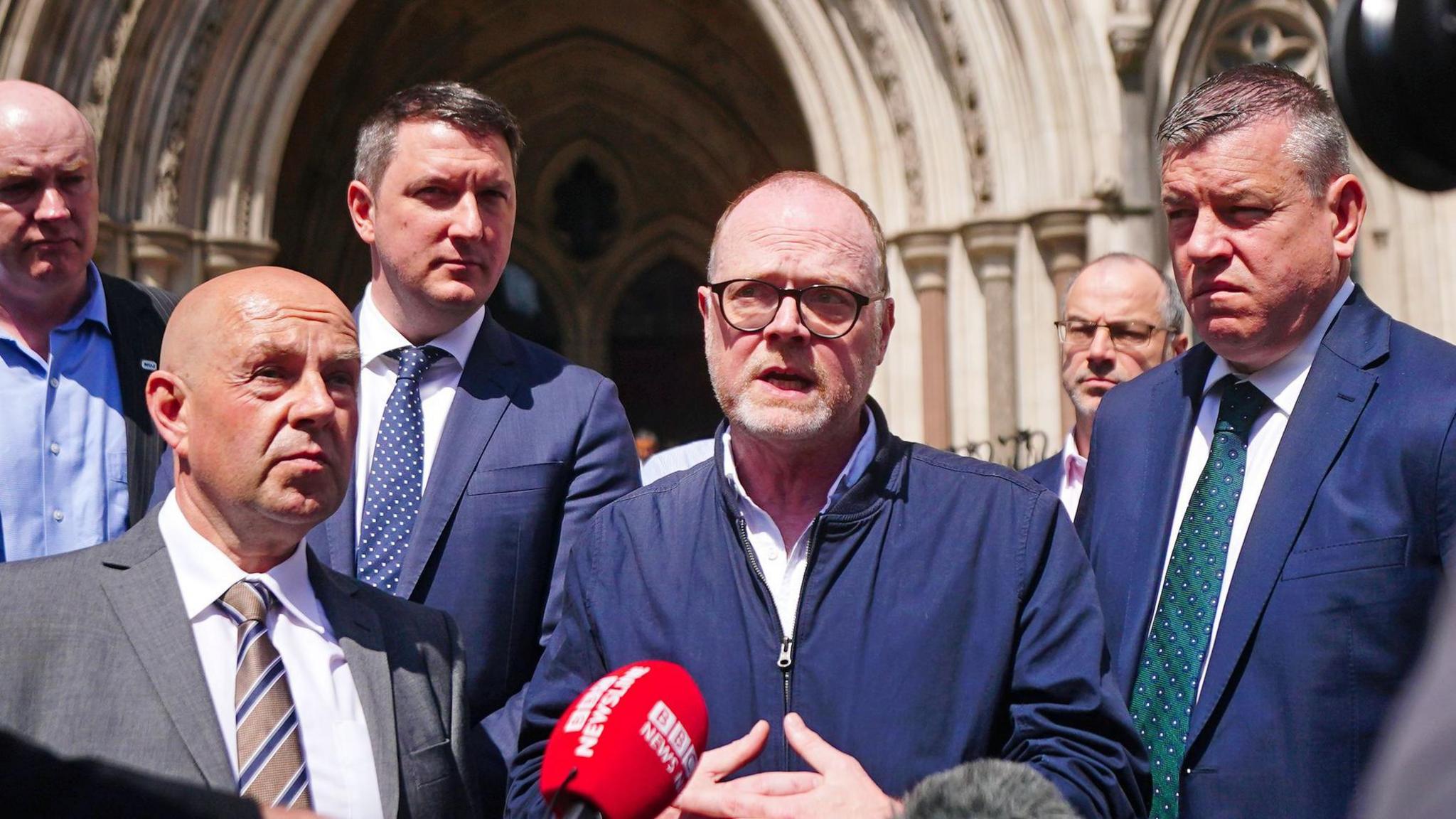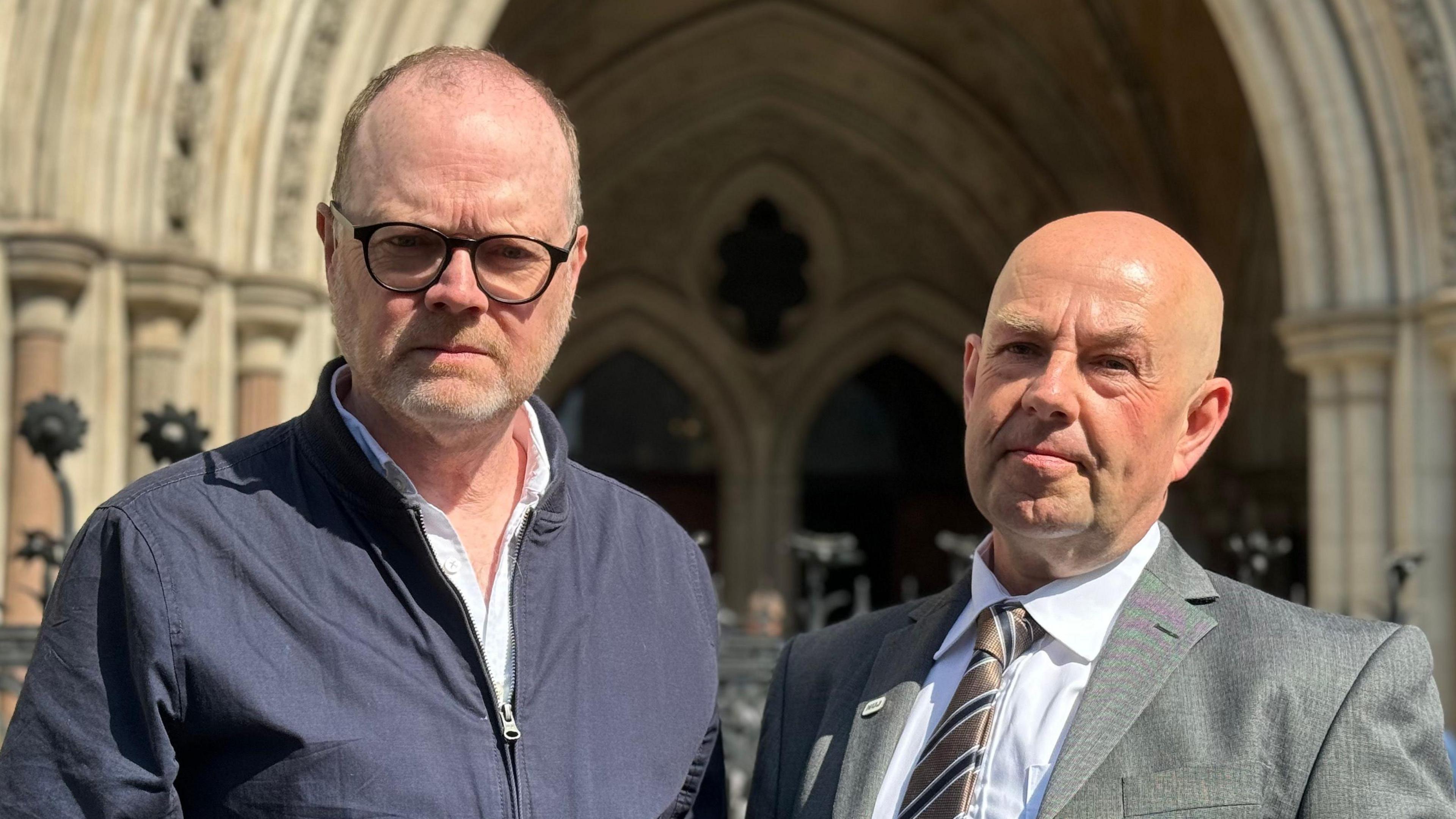Police surveillance public inquiry on hold - Long

- Published
Stormont's Justice Minister Naomi Long has rejected a call to set up a public inquiry into the surveillance of journalists and lawyers by the Police Service of Northern Ireland.
Naomi Long said it would not be "appropriate" to act until other investigations have concluded.
On Tuesday, she told the assembly the PSNI was operationally independent from her department.
The PSNI is expected to bring a report on "the extent" of the matter to a Policing Board meeting later this week.
The SDLP had submitted a motion calling for an independent inquiry into the alleged use of "wiretapping and other unlawful practices against journalists".
Leader of the opposition, Matthew O'Toole, said that "all too often" journalism in society had been compromised and that there was a need to establish the "breadth and depth" of any alleged surveillance.
But Mrs Long said while she shared concerns about the issue, she needed to respect "carefully designed lines of accountability" between the PSNI and the Policing Board, which oversees policing and holds the organisation to account.
"I stand ready to do what is required to ensure public confidence, up to and including a public inquiry, should that be necessary," she added.
MLAs backed an Alliance amendment to the motion which said the issue was in the first instance a matter for the Policing Board.

Jon Boutcher says he wants to "put the record straight"
On Monday, the PSNI Chief Constable Jon Boutcher announced an independent review of any use of surveillance against journalists and other specific groups by the PSNI.
He said Angus McCullough KC would conduct the review.
“Normally, I would make no comment regarding ongoing tribunal proceedings however, in this instance, the inaccurate interpretation of the documents has given rise to serious public concern about the use or abuse of police powers," said Mr Boutcher in a statement.
'Put the record straight'
"The reporting is continuing, and it is unsustainable for me as Chief Constable of the Police Service of Northern Ireland (PSNI) to make no comment. I want to put the record straight and correct the inaccurate assessment of these documents.
“The public concern arises from the misinterpretation of documents made available in redacted form at the Tribunal, at least one of which was subsequently published.”
He also said a “defensive operation” referred to a routine professional standards practice in terms of potential leaking of information to media.
Mr McCullough KC will provide a public-facing report of his findings when the review is finished and during this work he will be available to the Northern Ireland Policing Board to report on the progress of the review.
The review has been welcomed by the National Union of Journalists (NUJ).
The NUJ will work alongside Mr McCullough in an advisory capacity.
In an statement the NUJ's Séamus Dooley said: "This is an important step towards transparency at a time when faith in the PSNI has been severely undermined by revelations at recent Investigatory Powers Tribunal hearings.''
Former BBC journalist alleges police surveillance
- Published2 May 2024
PSNI to meet watchdog over journalist spy claims
- Published10 May 2024
'Troublemaker journalists' phone records accessed
- Published8 May 2024

Journalists Barry McCaffrey and Trevor Birney
What has led to this point?
Two human rights organisations have already called on the board to launch an inquiry.
The letter from Amnesty International and the Committee on the Administration of Justice (CAJ) follows developments in a case involving reporters Barry McCaffrey and Trevor Birney.
They were arrested in 2018 by Durham Constabulary who had been tasked by the Police Service of Northern Ireland (PSNI) to investigate how they obtained information for a documentary on the UVF Loughinisland massacre.
The following year, the pair won a court case which found the search warrants used had been “inappropriate”.
The journalists then filed a case with the Investigatory Powers Tribunal (IPT) which examines complaints regarding covert surveillance and this has widened the story.
Last month, a hearing in London heard claims the PSNI subjected other, unnamed “troublemaker journalists” to routine phone surveillance
Related topics
- Published11 May 2024
